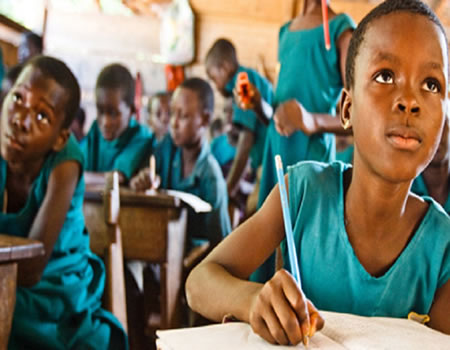[ad_1]
Government at all levels and critical stakeholders in the technology space have been advised to invest significantly in digital infrastructures that can help boost girl-child education in the country.
Former Commissioner for Women Affairs and Social Development, Akwa Ibom State, Eunice Thomas and the National Programme Officer, UN Women Nigeria, Patience Ekeoba as well as the Associate Product Marketing Manager of Google, Temilade Adelakun, gave advice as panellists at a recent roundtable organised in Lagos by the Mastercard Foundation in conjunction with Co-Creation Hub, a technology-oriented centre.
The trio said that even though there is an increasing interest in the deployment of technology to teaching and learning across the world, particularly after the COVID-19 outbreak, so many girls of school-going age are still not in school, unlike their male counterparts.
They said such a gender gap could be easily closed up through reasonable investment in digital infrastructures and resources that are friendly and can encourage many more girls to enrol in school and learn.
Speaking on the theme of the monthly virtual event, “Advancing girls’ education through digital learning,” the former commissioner said the time had come in Nigeria to let girls understand the importance of digital learning to their overall growth.
She said that even though there are policies towards girls’ education in the country, implementation has always been a great challenge.
She, therefore, urged stakeholders to always hold the government accountable by demanding effective implementation.
On their part, both Adelakun and Ekeoba maintained that Nigeria as a country needs to promote gender-responsive digital teaching and learning towards girl-children.
They said the government in particular would need to be more committed in this regard by investing hugely in digital apps, software, programmes, e-text and workbooks, educational videos, internet facilities and websites that are girls’ friendly.
While Ekeoba, however, identified the high cost of digital education, online bullying, negative cultural or social norms, as well a high level of ignorance as some of the challenges inhibiting digital learning among girls, she said it is very necessary that girl-child just like boy-child is technology savvy.
She said there is also a need to develop curriculum contents in local languages and equally train and retrain teachers in digital classrooms, noting that such efforts would significantly help learners to comprehend their studies better and faster.
ALSO READ FROM NIGERIAN TRIBUNE
[ad_2]








